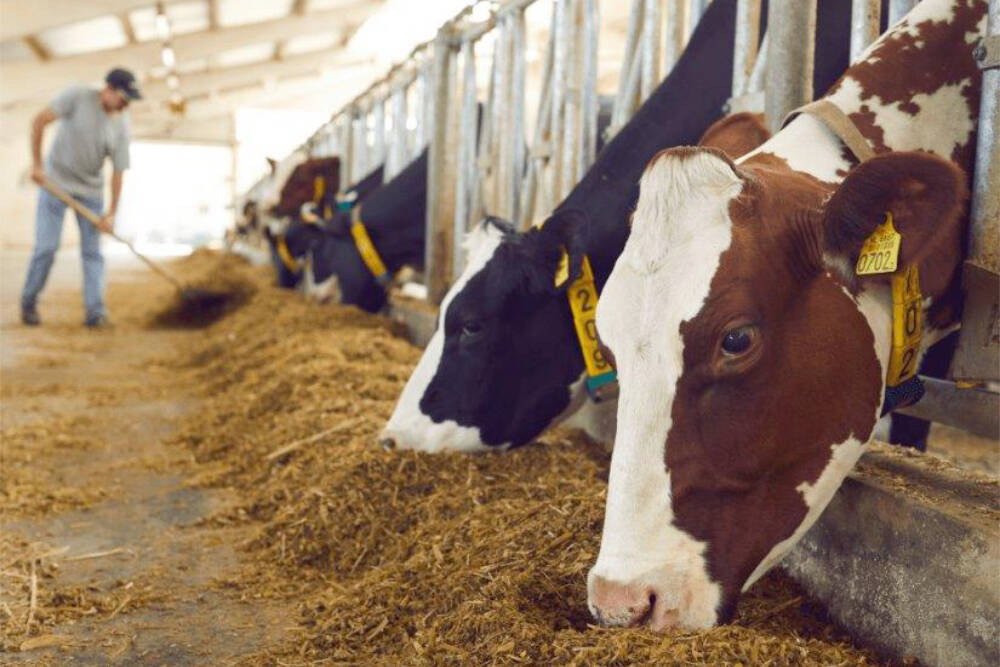A set of recommendations intended to improve the welfare and protection of farmed animals in B.C. has been presented to the Ministry of Agriculture and Food, the results of a committee formed by the ministry in 2023.
The BC SPCA, which participated in the committee, noted the list includes recommendations that touch on training, transportation and processing sectors as well as integrating and prioritizing farmed animals in emergency response situations.
The committee also recognized an opportunity to better support farmed animal protection by creating a new, government-funded inspection and enforcement function to assume oversight of the Prevention of Cruelty to Animals Act with respect to farmed animals, the BC SPCA said in a release.
Marcie Moriarty, chief protection and outreach services with the BC SPCA, was part of the committee.
“The BC SPCA is in support of all of the recommendations made by that committee… we feel that, when read in totality and if they’re actioned collaboratively, that we do feel we will see a better system to protect farmed animal welfare in B.C.,” Moriarty said Wednesday (March 27).
READ ALSO: ‘Unparalleled’ intake of 280 cats by SPCA draws help from B.C.
“One of the things the committee really felt strongly about was an increase in training available – training in all levels. In dealing with issues of transportation, a lot of the issues that could come up around farmed animal welfare can happen when you don’t have experienced, positively trained individuals who are handling these animals, who are aware first of all, of the standards currently in place for these animals, and the expectations (of) putting farmed animal welfare first.”
The BC SPCA, for many years, has called on the government to conduct a review of B.C. farmed animals laws and practices to ensure the safe, humane treatment of farmed animals while still supporting the viability of the province’s farming industry.
‘We firmly believe that a well-funded, proactive inspection system is critical for better animal welfare across all agricultural sectors involving animals,” Moriarty said. She also stressed the importance of accountability and transparency in reporting, if the recommendations are accepted and a new inspection and enforcement entity is established.
“For a well-executed system to parallel the level of expertise that the BC SPCA has provided for decades, a critical component of this system must be a strong reporting and accountability structure. We are eager to work with the provincial government and other committee members on the development and implementation of this system.”
Acknowledging any recommended changes will take some time, Moriarty is hopeful it will lead to change.
“We hope that the government does take action and steps to implement the recommendations,” she said.
Currently, the BC SPCA dedicates approximately 20 per cent of the organization’s enforcement efforts to complaints received about farmed animal activities, which include hobby farms and equines. A new function overseeing commercial farm inspections and enforcement would allow the BC SPCA to shift its focus to be stronger advocates for farmed animals and to further explore recommendations to improve farmed animal welfare laws, without being in an alleged position of conflict with industry, the society said.
Moriarty also highlighted that the recommendations focused on emergency response situations, such as wildfires.
‘Unfortunately… we see an increase in the amount of these situations happening in B.C. and seeing farmed animals included in these plans from government, we feel, is very important… considering the welfare of farmed animals in that context.”

